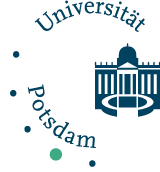Doctoral Researchers

Robert Gäde
Master of Public Policy and Management
Campus Griebnitzsee
DFG-Research Training Group "WIPCAD"
University of Potsdam
Department of Economics
and Social Sciences
August-Bebel-Straße 89
14482 Potsdam, Germany
Office: Campus Griebnitzsee, House 7,
Room 3.07.211-15
Research topic
“Exchange of tax information between tax administrations – under what conditions do they cooperate?”
Curriculum vitae
EDUCATION
08/2008 – 09/2011
M.A. in Public Policy and Management, University of Potsdam, Germany
Master Thesis: International policy change of inheritance tax regimes – an idea-based explanation for the race-to-the-bottom of inheritance tax rates.
09/2009 – 01/2010
Visiting Student, Corvinus University Budapest, Hungary
10/2006 – 09/2008
B.A. in Economics, Political and Administrative Science, University of Potsdam
ACADEMIC POSITIONS & PROFESSIONAL EXPERIENCES
04/2012
Research Assistant, Project “Public Leadership in Germany”, Zeppelin University, Friedrichshafen, Germany
05/2010 – 04/2012
Research Assistant, Junior Professor Public Administration and Policy, University of Potsdam
02/2009 – 09/2009
Student Assistant, KPMG AG, Institut für den öffentlichen Sektor e.V. (editorial work on the journal “Public Governance”)
08/2008 – 10/2008
Internship, Ministry of Economic Affairs and Labor, Saxony-Anhalt, Germany
02/2007 – 04/2007
Internship, Representation of Saxony-Anhalt in Berlin, Ministry and Länder Coordination for the Bundesrat
RESEARCH INTERESTS
- (Comparative) Policy Analysis
- Political Economy
- Tax Policy, Social Policy, Tax Administrations
- Policy and Institutional Change
- Staff/Elites in the Public Sector
Abstract
Exchange of tax information between tax administrations – under what conditions do they cooperate?
The Role of Tax Administrations in International Tax Cooperation: What is the effect of Administrative Capacity and Agency Independence on the Output of Information Exchange?
Cross-border exchange of information is nowadays the preferred instrument against the evasion and avoidance of taxes, where the financial crisis opened a window of opportunity for powerful high tax-countries to press tax havens into bi- and multilateral treaties with exchange of information clauses. Signature and ratification of cooperation clauses seem to be victory for the residence countries, with the hope that income can now be taxed at the place where it is generated. But high ex ante expectations are contrasted by insights from treaty compliance research, that the implementation of provisions is often symbolic, especially in such a tough collective action situation. Conflicts with clear winner and loser results are not solved in tax treaty negotiations, but often recur at later stages of the implementation process, which make effective cooperation on the ground difficult.
This PhD project aims to contribute to our understanding of treaty implementation in a highly competitive setting. Moreover, it adds an administrative layer to the tax competition literature by revealing the mediating influence of domestic institutions. After a comprehensive description of process and output of information exchange between partnering countries, I explain the variance in cooperation by domestic administrative features (capacity and independence of revenue bodies). Therefore, I conduct a staggered multi-method design on the basis of information flow data, peer reviews of implementation efforts and expert interviews.
In general the findings confirm the positive effect of the core explanatory variables, with interesting variance between different modes of EoI. While countries with higher administrative capacities share more data with their partners (spontaneous and automatic mode of EoI), the traditional EoI on request shows a reversed relation – meaning that high tax countries ask more low capacity jurisdictions for administrative assistance. In addition to that, the politics-administration relationships matters for the effectiveness of cooperation – observing more intense interaction between revenue bodies with formal independence from political principals, especially in low tax countries.
Apart from my core research focus, the data confirms prior research that the level of information exchange is determined by country interdependence and the domestic tax level. Interviewees emphasized the process dimension of administrative assistance: e.g. the reciprocity of information sharing, trust-building between key actors and self-enhancing mechanisms between various modes of administrative assistance.
